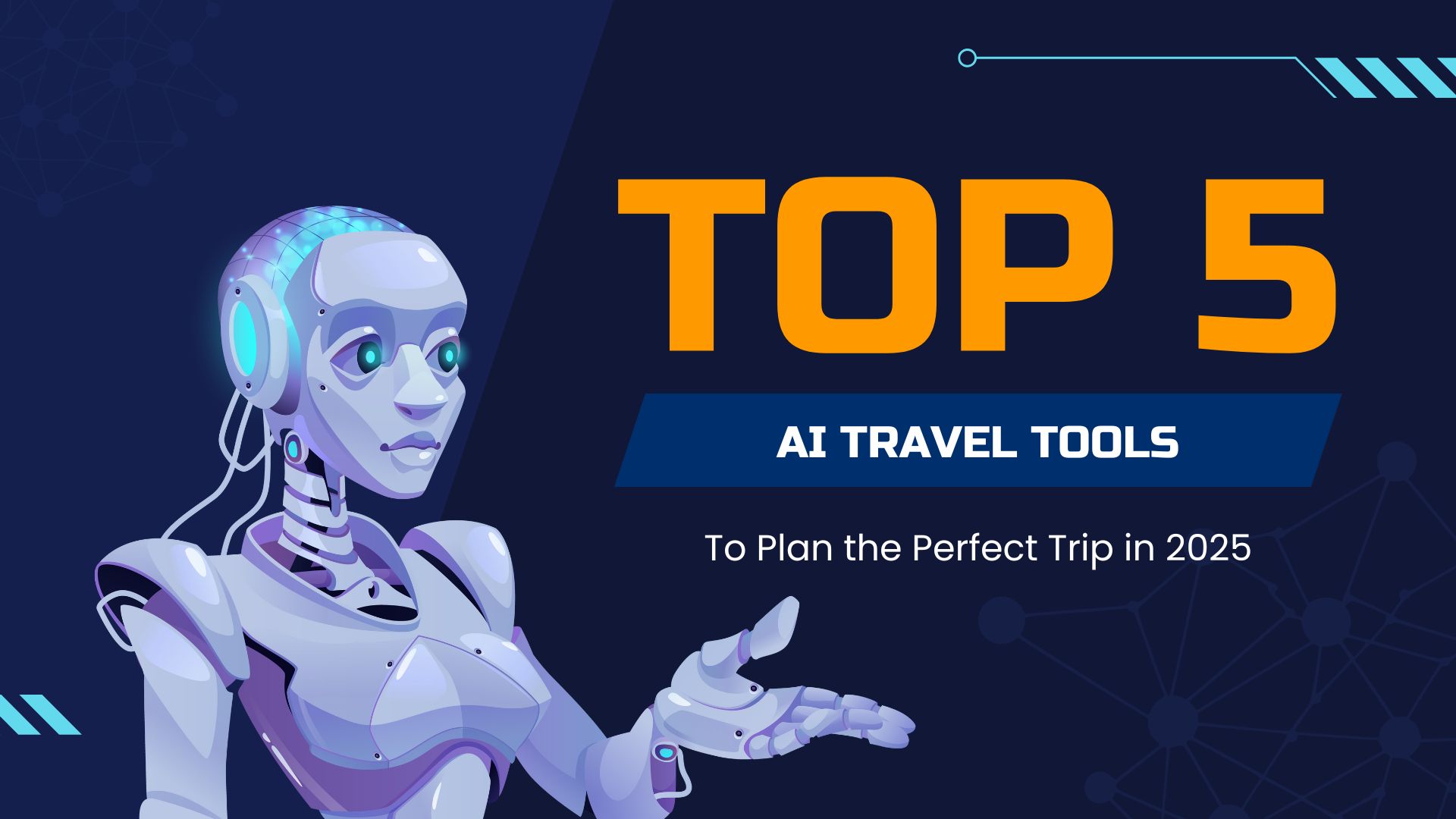Planning travel can be both exciting and exhausting.
From choosing a destination, booking flights and accommodations, to creating an itinerary that meets your expectations — there are hundreds of decisions to make.
In 2025, AI is stepping in to streamline this process, providing smarter, faster, and more personalized planning experiences.
AI in travel is not a futuristic fantasy; it’s already transforming how people organize their journeys.
In this blog, we’ll dive deep into the 5 best AI-powered tools travelers can use to plan their next trip.
The Role of AI in Travel Planning
AI’s integration in the travel industry allows for personalized, data-driven experiences. By analyzing user behavior, preferences, and trends, AI tools can:
- Recommend destinations based on your interests
- Suggest optimal travel dates
- Customize itineraries
- Book hotels and transportation automatically
- Provide real-time updates and travel assistance
This saves users hours of manual research and offers a more enjoyable, stress-free journey.
1. Navoy
Navoy is a state-of-the-art AI-powered travel platform that delivers ultra-personalized itineraries within minutes. With a sleek, intuitive interface, Navoy empowers travelers to input their preferences — such as destination, duration, budget, travel companions, and interests — and generates a full itinerary tailored to those needs.
What makes Navoy different?
Unlike traditional booking websites or itinerary tools, Navoy doesn’t just gather information — it intelligently organizes it into a coherent travel plan:
- Real-time booking integration: Book hotels, flights, and activities directly.
- Smart itinerary builder: Auto-generates a full daily plan, balanced with exploration and rest.
- Group travel assistant: Plans travel for families or friends with diverse preferences.
- Budget optimization: Recommends the best experience within your price range.
- Scalability & AI API: Offers a plug-and-play API for travel businesses to automate travel planning.
Whether you’re a solo adventurer, a couple on a honeymoon, or a parent planning a family getaway, Navoy adapts.
2. Google Travel
Google Travel uses your Gmail and Google Calendar to track your reservations and suggest options. It provides suggestions on what to do, where to go, and where to stay. However, it lacks the deeply personalized AI layer and real-time itinerary generation that platforms like Navoy offer.
3. TripIt
TripIt is a veteran tool that compiles and organizes your travel bookings into a neat itinerary. It scans your email for confirmations and structures everything into a centralized plan. While useful for organization, it doesn’t recommend or book services.
4. Hopper
Hopper is focused on predictive booking. Its AI predicts flight and hotel prices, telling you the best time to book for maximum savings. It’s an excellent tool for budget-conscious travelers who want to save money on airfare.
5. Roam Around
Roam Around is a new AI tool that creates itinerary suggestions based on destination and travel style. It’s helpful for discovering places to visit and daily routes, though it lacks booking functionality and advanced AI personalization.
Comparing the Tools
Tool | Personalized Itinerary | Booking Feature | Budget Optimization | B2B API Available |
Navoy | ✅ | ✅ | ✅ | ✅ |
Google Travel | ⚠️ | ✅ | ❌ | ❌ |
TripIt | ⚠️ | ❌ | ❌ | ❌ |
Hopper | ❌ | ✅ | ✅ | ❌ |
Roam Around | ✅ | ❌ | ⚠️ | ❌ |
✅ = Excellent | ⚠️ = Partial | ❌ = Not available
Conclusion: Why AI is the Future of Travel Planning
AI tools are not just accessories to the travel planning experience — they are rapidly becoming the foundation of it. With smart, automated, and adaptive features, travelers can spend more time enjoying their trips instead of stressing over the details.
Navoy, among these tools, shines as the most comprehensive solution, combining smart itinerary building, real-time booking, budget optimization, and scalability. Whether you’re a traveler or a travel agency, integrating Navoy’s AI capabilities into your journey is a step toward modern, effortless travel.
Stay tuned for more blog articles on how AI is shaping the travel industry, and how tools are leading the charge.





